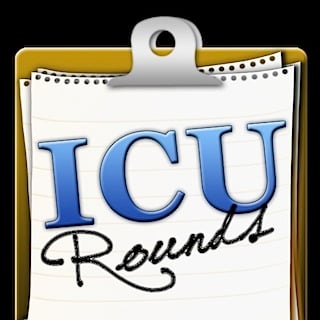Therapeutic Hypothermia following Cardiac Arrest
ICU Rounds
Jeffrey Guy
4.8 • 686 Ratings
🗓️ 22 December 2008
⏱️ 19 minutes
🧾️ Download transcript
Summary
Transcript
Click on a timestamp to play from that location
| 0:00.0 | You're listening to the podcast, Surgery, I see your rounds. My name is Dr. Jeffrey Guy. |
| 0:03.8 | I'm an associate professor of surgery and director of the Burn Center at Vanderbilt Regional |
| 0:07.1 | Burn Center in Nashville, Tennessee. The topic that I want to talk about today comes from an article |
| 0:13.8 | that I read a couple weeks back in the New York Times. And the title of the article is the date was |
| 0:19.6 | December 3rd, 2008. And the title of the article is, the date was December 3, 2008. And the title of the article |
| 0:22.4 | is that City pushes cooling therapy for cardiac arrest. And basically what the article says is |
| 0:29.7 | that effect of January 1st, New York City ambulances will be taking victims of cardiac arrest |
| 0:35.0 | to hospitals that are able to deliver therapeutic hypothermia following cardiac arrest. |
| 0:41.3 | When you get down to the third paragraph, it says it amounts to an endorsement by the Bloomberg |
| 0:46.3 | administration of labor-intensive, often expensive, is still developing therapy that smaller community |
| 0:50.3 | hospitals say they lack the staffing and financial wherewithal to provide. |
| 0:55.3 | Some hospital officials fear that the policy could be unfair, unfair to these smaller hospitals, |
| 1:02.7 | depriving them of income from emergency room patients and hurting their reputations with the public. |
| 1:08.9 | Well, what's interesting about this is that this, |
| 1:11.6 | the idea of therapeutic hypothermia was not Mayor Bloomberg's, and what it does is that the |
| 1:16.8 | scientific evidence shows that patients following autophosphore ventricular fibrillation arrest |
| 1:21.8 | who receive therapeutic hypothermia in a timely fashion have better neurological outcomes and better |
| 1:27.4 | survival. |
| 1:30.0 | Now, when we are making decisions regarding patient outcome and patient therapy, |
| 1:36.1 | really, that should be mostly based on patient survival and patient outcomes, |
| 1:39.6 | and the idea that we're going to be depriving smaller hospitals of potential income and hurting |
| 1:47.5 | their reputations, and that could be unfair is irrelevant. And I'd like to go through some of |
... |
Transcript will be available on the free plan in -5942 days. Upgrade to see the full transcript now.
Disclaimer: The podcast and artwork embedded on this page are from Jeffrey Guy, and are the property of its owner and not affiliated with or endorsed by Tapesearch.
Generated transcripts are the property of Jeffrey Guy and are distributed freely under the Fair Use doctrine. Transcripts generated by Tapesearch are not guaranteed to be accurate.
Copyright © Tapesearch 2025.

